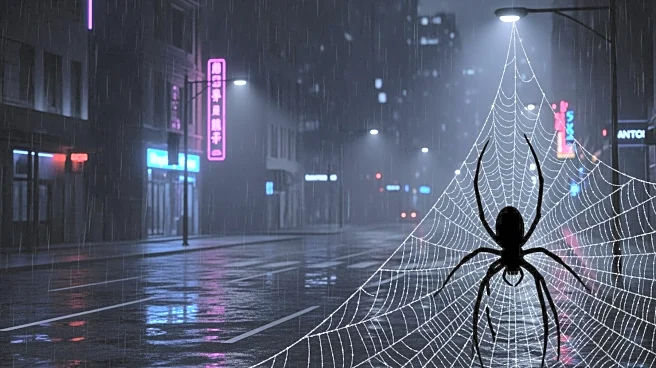What's Happening?
Rachel Sennott's new HBO series, 'I Love LA,' has sparked significant online discourse regarding its portrayal of Los Angeles and young social climbers. The show is being compared to predecessors like
'Girls,' 'Insecure,' and 'Sex and the City,' as well as contemporaries such as 'Overcompensating' and 'Adults.' Sennott acknowledges these comparisons and notes the influence of shows like 'Entourage' and 'Atlanta' on her work. She expresses excitement about the current landscape of television, which features numerous shows centered around young people, including those created by her friends Benny Skinner and Owen Thiele.
Why It's Important?
The discussion surrounding 'I Love LA' highlights the evolving nature of television narratives that focus on young adults and their experiences. By drawing comparisons to established shows, 'I Love LA' positions itself within a broader cultural conversation about generational identity and societal norms. This discourse is significant as it reflects changing attitudes towards gentrification, social climbing, and the representation of flawed characters. The show's reception may influence future productions and the types of stories that are told about young people navigating complex urban environments.
What's Next?
As 'I Love LA' continues to air, it is likely to generate further discussion and critique from audiences and critics alike. The show's creators and cast may engage with these conversations, potentially addressing viewer feedback in future episodes or seasons. Additionally, the success and impact of 'I Love LA' could inspire other creators to explore similar themes, contributing to a growing trend of television series that examine the intricacies of modern life for young adults.
Beyond the Headlines
The portrayal of Los Angeles in 'I Love LA' raises questions about the ethical implications of gentrification and the cultural dynamics of the city. The show's depiction of young social climbers may prompt viewers to reflect on their own values and aspirations, as well as the societal pressures that influence behavior. Furthermore, the series contributes to ongoing discussions about diversity and representation in media, as it showcases a variety of perspectives and experiences within the context of a major urban center.









